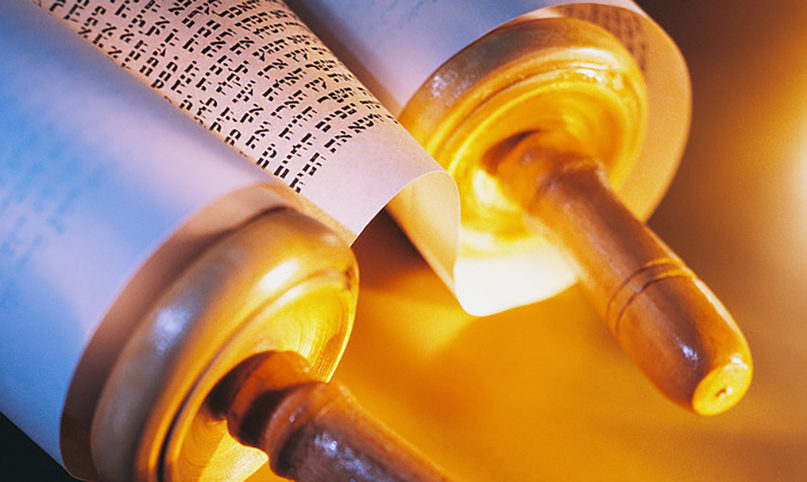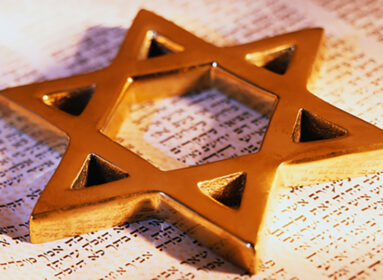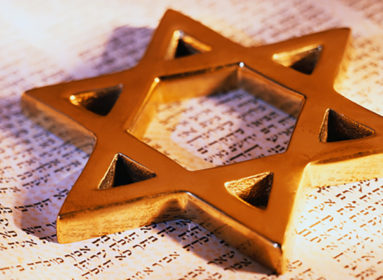
By Shlomo Riskin
One of the most fascinating aspects of the entire Torah is the portion dealing with the case of the daughters of Tzelofĥad, an incident considered of such significance that it is repeated at the conclusion of the book of Numbers as well (Numbers 36). How much faith we learn from these resourceful and irrepressible women!
But a most interesting secondary question may be pondered from the midrashic study of the incident of these five women: is it indeed permissible for men to learn Torah from women in the first place? In this particular instance the Talmud (Bava Batra 119) pictures Moses giving a class on the levirate marriage, with the five Tzelofĥad sisters in attendance. They raise a question before Moses: Is a daughter considered significant issue, to be respected as progeny and heir to her father’s estate, or not? If not, then you must allow our widowed mother to marry her deceased husband’s brother and be supported by him as the respected wife of a levirate marriage, just as though she hadn’t had issue or progeny at all. But if we daughters are considered progeny enough to exclude our mother from a levirate marriage, then you must allow us to inherit our father. And God decides in favor of the argument of these women. Hence it would seem that we certainly can learn Torah from women.
The Bible refers to two fundamental Jewish ideals, Torah and the Land of Israel, as morasha, a heritage, rather than yerusha, an inheritance (see Exodus 6:8 and Deut. 33:4). From a literal perspective, the word “heritage” (morasha) connotes more than the usual “inheritance”; it has the additional directive that it must be handed over from generation to generation. An inheritance may be squandered away; a heritage is meant to be passed down to one’s children. And Torah study applies to women as well as to men: “And Moses went up to God, and the Lord called to him from the mountain saying, ‘Thus shall you say to the house of Jacob [Rashi: this refers to the women] and shall you declare to the children of Israel [Rashi: the males]’” (Exodus 19:3). Therefore, the commandment of hak’hel, to gather the Israelites once every seven years and establish a reaffirmation of the covenant via a public study of Torah, includes the women as well as the men (Deut. 31:12). And if women must learn and accept Torah (at least the portions of Torah necessary to properly observe the commandment of God), then they must likewise be responsible to pass Torah down to the next generation – parent to child, teacher to student.
For this reason, Deborah is praised as one of the first judges in Israel (Judges 4:4–5), that Bruriah disagreed halakhically with her father Rabbi Ĥanina b. Teradion and her view is recorded (Tosefta Kelim 4), and that the Sefer HaĤinukh rules (Negative Commandment 152) that a learned woman fit to render religio-legal decisions may do so. To cite only one anecdotal example amongst many, when a difficult eruv question came up before a number of scholars, the grandmother of Rav Shneur Zalman of Liadi adjudicated the matter, and everyone acquiesced to her decision (Sefer HaZikhronot, Rabbi Yosef Yitzchak Schneerson, Part 2).
We learn from the daughters of Tzelofĥad that women not only have a portion of Torah, they also have a portion in the Holy Land of Israel. Their case, which was ultimately adjudicated by God because Moses did not have the answer, was that they were correct in insisting that since their father had no sons, they were to receive their rightful portions in the Land of Israel (Numbers 27:7). As a result of their vindication, the Almighty conveyed all of the laws of inheritance to Moses and Israel (Numbers 27:8–11). Women’s inheritance rights developed from this case to such an extent that if a father bequeaths only a small amount of property, the daughters’ sustenance and dowries must be provided for – even if nothing will be left over for the sons (Ketubot 108b).
But what we really learn from the daughters of Tzelofĥad is the true love of the Land of Israel. It is on this basis that Rabbi Ephraim of Lunschitz, known as the Kli Yakar, gives the following “feminist” spin to his interpretation of the first verse of the sin of the scouts: “And the Lord spoke to Moses saying, ‘Send forth your men that they may scout out the land’” (Numbers 13:2). Writes the Kli Yakar: “Since our Sages teach that it was [only] men who hated the Land [of Israel] and said ‘let us return to Egypt,’ whereas the women loved the land, as they [the daughters of Tzelofĥad] said ‘Give us an inheritance,’ the Holy One blessed be He, who knows the future, said it would be better to send women, but [unfortunately], you [Moses] trust [your] men.” God understood, however, that only tragedy would result from a reconnaissance mission consisting only of men!








 Southern New England Jewish Ledger
Southern New England Jewish Ledger










